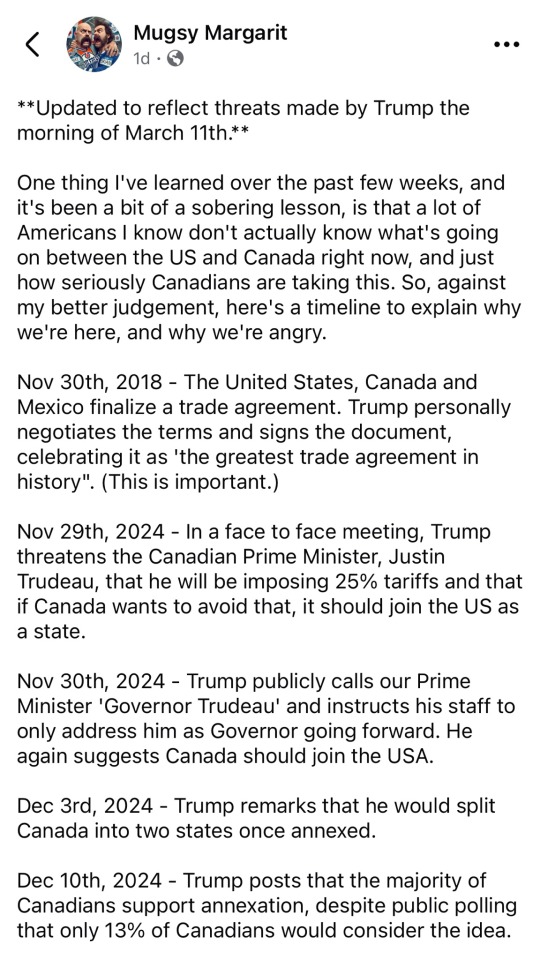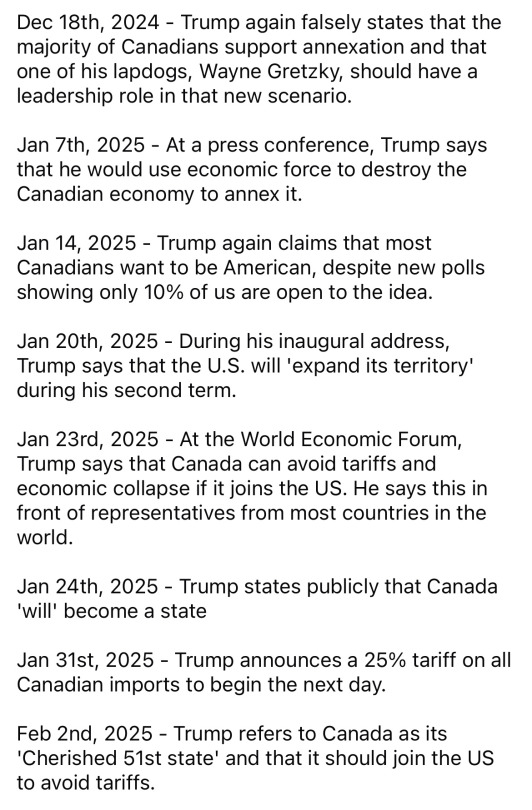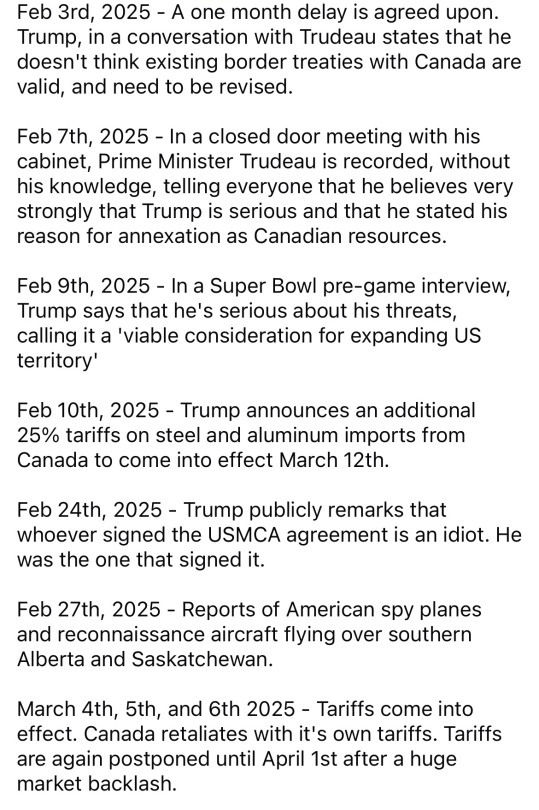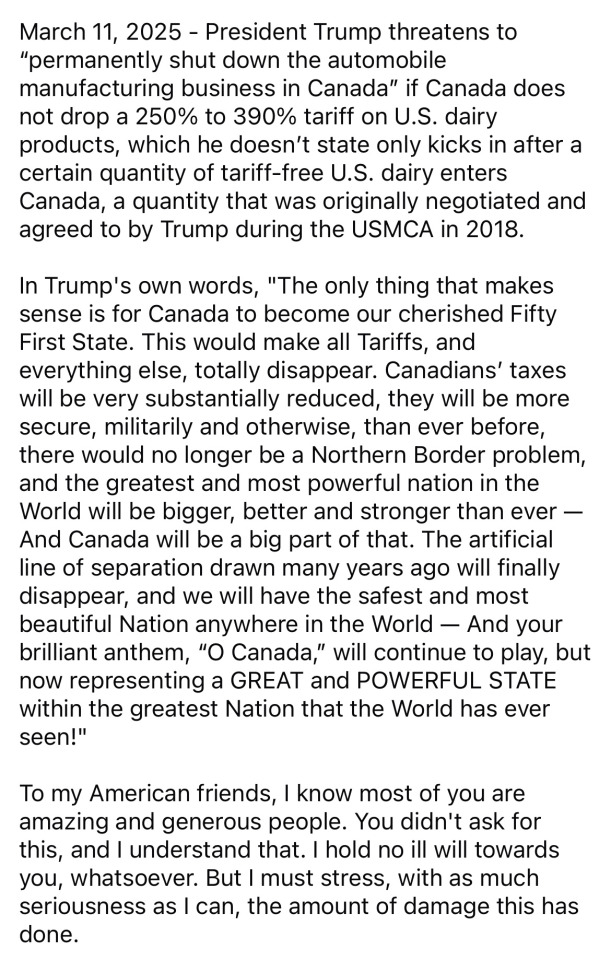This is where I keep my many ships. Expect some mild horniness, fluff and crack, and also some marketing stuff because I have Opinions(tm)
Don't wanna be here? Send us removal request.
Text
Am French, can confirm, we just fish people. The way the English speaking world does April 1st always weirded me out, what with the 'kick me' signs and the jumpscares and ... all that. Just tape a paper fish to someone's back, as colorful as you please, drawn according to your skill level. Used to be, back in Ye Olden Days, back when refrigiration wasn't a thing, the fish you got stuck to you was an actual whole fish, which can be both nice (hey, free food) and not nice (slimy food juice on clothes) but now it's basically exclusively the paper fishes, and it's better.
no cruel jokes or pranks this April 1st we should instead celebrate the better April 1 holiday

#France#april fool's day#april fools#poisson d'avril#harmless joke#no harm#no fishes were harmed in the making of this prank#it's just paper bro#a fish shaped paper#with a fish drawn on it#it's not mean#it's just silly
11K notes
·
View notes
Text
THIS ! This I what I meant with my post about Clans being important in Arab cultures. This is part of it. As Hamas increases repression, the armed members of the clans and famillies will have honor-based incentives to retaliates. Here, a Hamas member murdered a familly member, so they execute the Hamas member. As Hamas increases the repression and murders more familly members, there will be more Hamas members getting executed in turn. There is a real, actual possibility of a Gaza civil war. And the best thing Israel could do then is to stop all bombings, even in support of the anti-Hamas. So as to avoid the risk of making the anti-hamas side look manipulated.
Now all we need to know, if if this will be limited to Southern Gaza ... and if Egypt will use this to their advantage to remove the local splinter of their number one problem : The Muslim Brotherhood.
4/1/25
Ihab Hassan
A video shows gunmen from the Abu Samrah family in Gaza capturing Hamas militia member Ibrahim Shaldan and walking him through the street before publicly executing him. He had killed their relative earlier this morning.
Video of the execution is on Telegram:
13 notes
·
View notes
Text
I'm not killing anyone, regardless of means, in the current circumstances, because the very thought of killing someone makes me uneasy and I do not want to live with that in my head, but I DO reserve the right to pour a pitcher of cool water on each of their feet and lambast them for 10 minutes about being an asshole. Then I release them. And then, since this is the Worst Person, I am running very very far.
That Tumblr death note poll having over half of voters say they would use it to purge their political enemies puts so much of this site into context. Almost nobody here is progressive you're all just aspiring inquisitors and tchekists looking to purge the world of the unholy through fire and sword. The only guiding moral principles on this site are that might makes right and that the strong should do as they please while the weak suffer what they must. It genuinely contextualizes all of the awful behaviors that are accepted as normal here.
316 notes
·
View notes
Text
OK, so, Middle Eastern people will already know what I'm going to say, so this is for Westerners : this is huge. Not just because Gazans are calling to kick out Hamas, but because it is a assembly of CLANS.
For Westerners, clans are seen as, in effect, an outdated concept that doesn't really have that much weight, so why care. You'll have some famillies that still hold up their clan structure to a point, like when three or four different branches of the same familly gather at the same place at set dates with some degree of regularity. But overall, the idea of "clans" in the West is seen as something of the past, a piece of folklore.
That is very much not the case in the Arab world. Clans still play a major role, socially AND politically. Clans are a very, very, very important part of someone's social identity. So if the Clans of South Gaza are calling for an Intifada against Hamas, then those clans' fighters will at minima be given an unofficial ultimatum : Hamas or the Clan, quit one.
Will we see flashy consequences on TV ? Most likely not, Hamas is from the same cultural sphere and knows the social rules and context. But it DOES show a loss of faith and trust in Hamas, and also a loss of strength sufficient that the Clans feel comfortable attempting this. So Hamas won't be able to just slam a foot down on that. My point being : this is huge in the Arab cultural context.
3/26/25
Wow.
Ihab Hassan:
The Assembly of Southern Gaza Clans has issued a powerful call for a popular uprising (Intifada) against Hamas, accusing the group of gambling with Palestinians’ lives for its own narrow, self-serving interests.

Google translation:
Statement issued by the families and clans of the southern governorates - Gaza Strip
Our steadfast people in Gaza, enough is enough, there is no longer room for silence or waiting Years of oppression, starvation and destruction, and now our people are being pushed towards destruction without mercy or responsibility In the name of the clans of Gaza, you are calling for a popular uprising against injustice, and a march of anger that will shake the ground under the feet of those who sold our blood and exploited our suffering for their narrow interests. The people of Gaza have sacrificed the most precious and valuable, and what was the reward? More death, more hunger, more humiliation We will not accept to remain fuel for narrow calculations, and we will not allow this farce to continue Enough playing with our lives and the future of our children! Enough trivializing our suffering! Hamas must lift its hand from Gaza immediately, and end this unjust blockade imposed on us due to decisions that do not represent us. We call on you all to take to the streets and make our voice heard to the world: Gaza is not held hostage by anyone. Gaza will be liberated by the will of its people.
460 notes
·
View notes
Text
You're right, it does sound absurd, it sounds absolutely bonkers, but distressingly enough, I could see it happen.
It sounds absurd, and credible. And that's terrifying.
I'm not sure I agree with the Fallout!US making real life US sound sane, but that may be because of the added lore from Fallout 2 onwards.
But one thing's for sure : Musk and Trump are definitely the kind of people to try and set up an Enclave lookalike for their billionaire buddies. I absolutely can imagine Musk in particular trying to create the Enclave "for the lulz", aethetic and ideology included.
From The NY Times:
And from Facebook:







(X)
(Edited to make the first link a mainstream source rather than Substack)
9K notes
·
View notes
Text
I don't agree with this. When your country goes to as much effort as the US did to make others dependent on them for logistics, military support and critical industries (including buying up strategic industries in allied countries to then carve them up and ship the value home while leaving only unemployment behind), going "well it's far, can't those close do it without us?" feels extremely weird. Could even feel malicious. Just saying. Wouldn't it be rather natural for the country that so fiercely fought to make us dependent through industrial acquisitions, soft power and lobbying, to not abandon us ?
And apologies if I sound aggressive, but USAmericans never seem to consider just WHAT the US soft power has been used for in Europe, and the consequences.

8K notes
·
View notes
Text
That's actually a fundamental question of economy, one that doesn't get talked about enough, applied to the economic field of "food".
Do people deserve food for being Humans ? Or is food something to be earned ?
Is the Economy in service of Humans ? Or are Humans in service of the Economy ? Resource scarcity has forced the second option for a very, very, very long time. But we are post-scarcity in several fields. Including food.
Too bad the economic ideology that posits to do away with scarcity has an in-built bias for dictatorship and a Historian-certified track record.
a society that allows people to starve when there is food has failed. like. that’s it.
369K notes
·
View notes
Text
I mean, if you need more evidence that Trump doesn't care about Jews, and is thus trying to use them, just look at what he did to Israel : an Afghan special. AKA going over the head of state to directly negociate with the terrorist movement so as to gain a punctual, small scale media win at the expense of the country he's supposed to support. If he's willing to do that to Bibi, his fellow criminal asshole that worked so hard to betray and humiliate Biden, what makes you think he won't try to strong-arm and morally brutalize Jews that did NOT support him ?
The trump administration is not cracking down on pro Palestine protest due to antisemitism. They are cracking down on pro Palestine protests as a way to use jews as a scapegoat to ideally shut down all protests. They are actively and intentionally trying to increase antisemitism on the left, which in of itself is antisemitism.
They are trying to send the message that it's the jews fault that pro Palestine protests are being shut down. And then when it gets extended to other protests, it too will continue to be blamed on jews.
This is a move which directly benefits the right. Jews have historically voted left globally. During the last US election jews continued to vote mainly left. By "pandering" to "stopping antisemitism" the right is trying to entice jews to vote for the conservatives, and to get normal people who care about jews to also vote for the right by increasing antisemitism on the left. Trump and his goons do not genuinely care about jews and will turn on us once he gets what he wants.
Do not fall for his tactics. And also please remember that just because trump is using jews as a scapegoat, that antisemitism isn't present on the left and in these protests. Antisemitism is still present. This is why trump is using this tactic. He is using a very real issue (leftist antisemitism) to manipulate non jews to become more antisemitic and manipulate jews to view trump as the sole answer to jewish safety.
The only way to successfully fight back against trump is for non Jewish leftists to put in the work to remove antisemitism from the pro Palestine movement. Give trump nothing to use in his manipulation.
706 notes
·
View notes
Text
Yes, I am sure that Moonhater EIGHTY EIGHT would not want to interact with Nazis ... in public.
new nazi blog to block, friends


they’re taking the hamantaschen joke as a confession lmao
you might think, “surely this is satirical” but no, they’re just here to harass jumblr. it would be cool if any of these people could get a life outside of their rabid antisemitism
81 notes
·
View notes
Text
An overly simplified understanding of problems leads to simplistic answers, and those answer no real questions. Failing to answer real questions makes those answers nothing more than moralist grandstanding, the Thoughts and Prayers of political action : noisy, attention-grabbing non-actions that are de facto useless.
there's a thought I keep having, and said thought is simple:
Demanding that the world simplify itself down for your comfort doesn't work for anyone.
The world is not composed of Pure Good People And Evil Bad People. There are no "Ethical States" that are unproblematic, but there are nations that are walking travesties of human rights abuses, and they are not equal, and refusing to distinguish between them is not a Good Thing. There is no Grand Conspiracy full of a small and finite number of Evil People who can be defeated in order to bring about the Revolution/Rapture.
It's fine--laudatory, even!--to have a vision of how you want the world to work. But trying to simplify down human beings into spheres of equal density on a frictionless plane and expecting people to successfully adapt that into solutions for real world problems is not going to work.
And there will be times where you (individually or collectively) will be faced with a trolley problem, and trying to pretend that there is some magical third option available--"I would just shoot the person tying people to trolley tracks!"--is just moral cowardice. There will be times where nuance and an understanding of world history is needed. There will be plenty of times where your outsider perspective is actively in the way of understandings. There will be times when you have to get your hands dirty doing something that you don't like. There will be times when you need to compromise to meet others halfway in order to achieve your goals.
And refusing to accept that reality, and demanding that the world simplify itself to suit you is not a moral stance.
It's an immature tantrum.
319 notes
·
View notes
Text
The claim here is that Israel is killing "thousands of people a day"
Thousands is plural, so let's go for the conservative estimate of 2000 a days, at minimum.
This conflict has been ongoing since October 7th (due to the Hamas attack) but Israeli operations only started on October 27th 2023, and a ceasefire has come into effect on January 19th 2025. Using these dates as boundaries, you have 451 days of active conflict. 451 * 2000 = 902 000 That amount of cadavers is rather hard to hide, and would indeed be extremely visible to the many observers still inside the Gaza strip. Moreover, if roughly half of the Gaza strip population had been killed and, somehow, the corspe vaporizing jewish space lazer bullshit was true, the difference would be visible on sight alone in the size of the population movements.
In conclusion, the-bitch-in-the-tower, in addition to living down to their name by acting like a self righteous bitch, is mathematically proven to be talking out of their ass.
I rest my case.
wish people would learn what "zionist" actually means instead of immediately assuming it means someone that wants every palestinian dead and stop demonizing it
386 notes
·
View notes
Text
I wonder how much of culturally christian masculinity is built in opposition to Jewish masculinity ? I mean, it wouldn't be the first field where it happened ...
RIP Franz Kafka you would've hated these goyim constantly erasing your Judaism and the fact that you were a zionist
962 notes
·
View notes
Text
That's a possible outcome, with the same or same-ish number of ships going in but only stopping in one port, but if that's the case it's worse in some ways. Yes, this would increase road traffic inside the US, which would increase costs and strain the infrastructure, but it could also lead to entire ports just dying off, especially secondary ports, resulting in loads of lost jobs in very specific and qualified fields. Then there's the exports that would usually go through those ports which would have to be ferried to the few, centralized survivor ports, increasing costs and reducing their competitivity (and thus the economic viability of their producers) on the international markets.
Add in that those survivor ports would have to be expanded to a ludicrous degree, forming entire cities of port infrastructure and logistic equipment. The cost would be prohibitive to, in effect, only maintain economic activity to its current level. Add in the population displacements, the seizure of land, the conception costs ... The other option to prevent the costs of massive reorganization and loss of ports would be to specialize those ports in terms of destination or of cargo origin, for instance making sure ports only receive ships from a specific country, or cargo going to a specific country (one or the other, organized on a national or at least regional scale). But then you have to get the cargos to or from entirely different and very distant regions, and it's a logistics nightmare, and it's a mess either for cargo going in or going out, depending on the option you chose.
Either way, increased costs.
Boat touching : shipping edition
"Rule for thee, but not for me ! Grab ‘em by the boaty !" - Trump, apparently
As you may or may not have heard, President Trump, the world’s most economically illiterate dorito (no, he is not a tangerine, he is far too salty for that) has decided that China is being bad on the waters of the 7 seas too, and has decided that the perfect retaliation to such dishonor would be a tax on Chinese ships. Yes, yes, not products, ships. That come into US ports. With stuff on board. Those ships. One might expect a nation that so passionately tells the world ‘don’t touch our boats’ to understand that molesting other peoples’ fleet may not be conductive to a better situation, but alas, here we apparently are going. So, since this is a rather niche topic, but with wide reaching consequences, I have decided to continue in my glorious efforts to become the Economy Side of Tumblr (what has my life come to) and explain just how deeply and passionately boned we are if this goes from proposal to law.
The facts
First off, let us set this stage with the letter of the (proposed) law.
The text (called USTR) has 3 tax triggers :
- The ship is operated by a Chinese company, 500K to 1 million dollars of entry fee
- The ship is chinese-made or its owner company has chinese-made ships, 500K to 1,5 million dollars of entry fee
- The company ordered a ship in China, 500K to 1 million dollars of entry fee
It is currently unclear to me if those fees are cumulative, despite looking it up, I could not find an answer at this time, the only thing clear is that the fee, whatever it ends up being, will be paid at each entry into a US port. I suspect the cumulativity of the fees will be left to interpretation and later deliberation, which creates deep economic uncertainty, easily one of the most hateful kinds of uncertainty.
I mean, not knowing if you’re ordering oatmeal or chocolate cookies is already bad enough, but not knowing if the ship carrying them to your shores is going to pay 500k to 1,5 million dollars or 500K to 3,5 million dollars PER STOP is just … that ruins the cookies regardless of what you get. No amount of milk can salvage that. In large parts because, at this point, each cookie may end up costing as much as the entire bottle of milk.
“Oh hoho, oh Admiral, you jokester, you jester, you funny person you”, you say desperately hoping that I am joking. But you are desperate for a reason. There is no humor here, there is no mirth or hope or joy, only suffering and taxes. And barnacles. Those get everywhere on topics related to the sea. But mostly taxes.
Second, container ships tend to make 3 to 4 stops in US ports for a single trip (as explained in this lovely article from the Cato Institute), which results in a total potential sum of 1,5 to 14 million dollars. Per ship. For a single trip. You can scream now.
Third, how many companies could be affected by this issue ? I do not have a precise number, in large parts because “who has Chinese ships” wasn’t exactly a metric that got tracked before, but the answer to that question is in an order of magnitude scientifically called “a metric fuckton”. You see, the chinese fleet of cargo ships represents 19% of the global total of cargo ships. And I mean ocean-going cargo ships. So that’s a good 5th of worldwide maritime trade having to scrape off even their barnacles to try and make payments. But that’s just Chinese companies. You also have to take into account that China has 50% of all shipbuilding market shares, meaning it builds half the commercial ships in the world. Among which are 95% of container ships. The big chunky bois, those that can get to lengths greater than the Nimitz class super-carriers operated by the US Navy and do a respectable 2/3rd of their width. Oh, and China also does 86% of intermediate sized cargo ships.
Fourth, fun fact : big container ship dockyards stopped operating in the US in 1980. You know, just in case you thought you could revive that industry quickly, or on the cheap, or on the costly. Or at all, really. Building those big ships is VERY costly, and takes very long, and also there’s no adapted infrastructure in the US for ships of that size outside of military dockyards (which are already being used, thank you). So between the cost to build the new dockyards, train employees, build the ship itself and recruit and train a crew … Oh, and the end result would likely not even be competitive price-wise. You know, just in case you had any hope left for that.
Five, SALVATION ! One can have their entry fees waved, if only they have a USA made ship enter into a US port with stuff on board, huzzah, Trump 5D chess confirmed !!!! All you have to do is have a US-made ship enter a US port for each Chinese-made ship that does the same ! Surely, the overbooked, chronically late, undersized ship-building industry of the US will be up to the challenge !!!! Yeah, no, I can’t keep this up any longer. That’s not going to work. It’s not even being spoken about in most of the articles I’ve seen, that’s how insignificant in reality that measure is.
Boat touching, and why it is a bad idea
Now, let’s talk about the funny part : the consequences ! Aaaah, FO, what a wonderful acronym. Am I telling people to fuck off or to find out ? What suspense !
First off, the obvious : if the fee is on entry into US ports, why not go elsewhere ? Good question ! And honestly, it’s likely that it will happen, to some degree. The obvious answer would be Mexico or Canada, but it’s unlikely they could absorb all that transit, which would results in slow-downs (and thus, lost money) in a lot of logistic chains. As you may have guessed, disrupted logistic chains aren’t exactly economically tasty.
Mexico in particular doesn’t have that many ports adapted to such large ships and large numbers of containers, meaning there’d be even more slow-downs. And then there’s the issue of getting the goods across the border, and Trump can definitely decide to slap on even more tariffs, he’s like that. So more slow-downs for even more costs ! Yay ! But meanwhile, US ports would still see lower numbers of ships coming through, meaning less activity and less cash-flow, meaning job losses.
Second, you have to consider the impact on US exports. Because you see, Chinese-made or owned ships don’t just come in, drop stuff off and disappear over the horizon with a vaguely oriental soundtrack, we’re in reality, with serious people, they drop containers off in 3 or 4 ports, all while picking up containers of US exports at each stop. So the fees to sail into port will be spread on both the foreign imports and on US exports. Meaning US exports will cost more, compounded by retaliatory tariffs. Meaning competitors will be cheaper, or even than US products will leave reasonable price ranges. Either way, loss of sales and income for US companies, and thus loss of jobs.
Third, this will increase prices inside the US, once again compounded by tariffs, but this time Trump’s tariffs. Either way, this will increase prices of products, likely pricing out entire communities, or making entire companies economically non-viable. As you guesses, that means job losses, but also loss of comfort.
Fourth, some degree of economic chaos as worldwide shipping reorganizes to face this new and unpleasant situation. And that will likely hit everyone to some degree, so expect some grudges to spawn from that, too.
In conclusion, while there is reasonable concern to be had about China’s dominance of shipbuilding, Trump’s measures will do a grand total of fuck all to solve that issue. All they will really do is make the situation worse and costlier for the US. The measure aims for an impossibility (speedy resurrection of a US shipbuilding sector for large scale cargo ships) without doing anything to support that or to make such an activity economically viable in the US. It is, in effect, an economic scarification ritual, based entirely on the idea that by hurting others and themselves and incantating enough, the US will be able to magic viable dockyards into existence and produce ships quickly.
I hope I don’t have to explain why that’s not realistic. And honestly, I am almost impressed, it’s incredible to come up with a policy that harms that many different economic agents in your own country. Honestly, at this point, I don’t know if Trump’s economic policies are dictated by The Most Incompetent failed student, or by a squad of drunk chimps going ham on a typewriter and somehow randoming their way into only the worst possible economic policies. If Trump suddenly subsidizes banana plantations, we’ll know, and likely be in better hands, even with how psychotic chimps are.
43 notes
·
View notes
Text
Some Americans dynamite beaver dams on their properties. I know one that does that.
Things tumblr has taught me about the USA:
They like trains
They have no trains
They have voting
They do not like voting
They are desparate to be the main character of everything that happens in the world
Burger
839 notes
·
View notes
Text
I hear he is harth the man his father was
Due to a misspelling on my part while writing down a wish I wanted the djinni to grant me, I have been transported back in time and turned into a servant of the king of England, Denmark, and Norway
31K notes
·
View notes
Text
I may write something about the recent clash in the White House, explore possible geopolitical consequences of Zelensky's mistreatment and Trump's siding with Russia, including indirect consequences. Is there interest for it ?
#geopolitics#trump#zelensky#ukraine#jd vance#economy#economy side of tumblr#politics#perspective#global economy#china#russia#europe#EU
3 notes
·
View notes
Text
Boat touching : shipping edition
"Rule for thee, but not for me ! Grab ‘em by the boaty !" - Trump, apparently
As you may or may not have heard, President Trump, the world’s most economically illiterate dorito (no, he is not a tangerine, he is far too salty for that) has decided that China is being bad on the waters of the 7 seas too, and has decided that the perfect retaliation to such dishonor would be a tax on Chinese ships. Yes, yes, not products, ships. That come into US ports. With stuff on board. Those ships. One might expect a nation that so passionately tells the world ‘don’t touch our boats’ to understand that molesting other peoples’ fleet may not be conductive to a better situation, but alas, here we apparently are going. So, since this is a rather niche topic, but with wide reaching consequences, I have decided to continue in my glorious efforts to become the Economy Side of Tumblr (what has my life come to) and explain just how deeply and passionately boned we are if this goes from proposal to law.
The facts
First off, let us set this stage with the letter of the (proposed) law.
The text (called USTR) has 3 tax triggers :
- The ship is operated by a Chinese company, 500K to 1 million dollars of entry fee
- The ship is chinese-made or its owner company has chinese-made ships, 500K to 1,5 million dollars of entry fee
- The company ordered a ship in China, 500K to 1 million dollars of entry fee
It is currently unclear to me if those fees are cumulative, despite looking it up, I could not find an answer at this time, the only thing clear is that the fee, whatever it ends up being, will be paid at each entry into a US port. I suspect the cumulativity of the fees will be left to interpretation and later deliberation, which creates deep economic uncertainty, easily one of the most hateful kinds of uncertainty.
I mean, not knowing if you’re ordering oatmeal or chocolate cookies is already bad enough, but not knowing if the ship carrying them to your shores is going to pay 500k to 1,5 million dollars or 500K to 3,5 million dollars PER STOP is just … that ruins the cookies regardless of what you get. No amount of milk can salvage that. In large parts because, at this point, each cookie may end up costing as much as the entire bottle of milk.
“Oh hoho, oh Admiral, you jokester, you jester, you funny person you”, you say desperately hoping that I am joking. But you are desperate for a reason. There is no humor here, there is no mirth or hope or joy, only suffering and taxes. And barnacles. Those get everywhere on topics related to the sea. But mostly taxes.
Second, container ships tend to make 3 to 4 stops in US ports for a single trip (as explained in this lovely article from the Cato Institute), which results in a total potential sum of 1,5 to 14 million dollars. Per ship. For a single trip. You can scream now.
Third, how many companies could be affected by this issue ? I do not have a precise number, in large parts because “who has Chinese ships” wasn’t exactly a metric that got tracked before, but the answer to that question is in an order of magnitude scientifically called “a metric fuckton”. You see, the chinese fleet of cargo ships represents 19% of the global total of cargo ships. And I mean ocean-going cargo ships. So that’s a good 5th of worldwide maritime trade having to scrape off even their barnacles to try and make payments. But that’s just Chinese companies. You also have to take into account that China has 50% of all shipbuilding market shares, meaning it builds half the commercial ships in the world. Among which are 95% of container ships. The big chunky bois, those that can get to lengths greater than the Nimitz class super-carriers operated by the US Navy and do a respectable 2/3rd of their width. Oh, and China also does 86% of intermediate sized cargo ships.
Fourth, fun fact : big container ship dockyards stopped operating in the US in 1980. You know, just in case you thought you could revive that industry quickly, or on the cheap, or on the costly. Or at all, really. Building those big ships is VERY costly, and takes very long, and also there’s no adapted infrastructure in the US for ships of that size outside of military dockyards (which are already being used, thank you). So between the cost to build the new dockyards, train employees, build the ship itself and recruit and train a crew … Oh, and the end result would likely not even be competitive price-wise. You know, just in case you had any hope left for that.
Five, SALVATION ! One can have their entry fees waved, if only they have a USA made ship enter into a US port with stuff on board, huzzah, Trump 5D chess confirmed !!!! All you have to do is have a US-made ship enter a US port for each Chinese-made ship that does the same ! Surely, the overbooked, chronically late, undersized ship-building industry of the US will be up to the challenge !!!! Yeah, no, I can’t keep this up any longer. That’s not going to work. It’s not even being spoken about in most of the articles I’ve seen, that’s how insignificant in reality that measure is.
Boat touching, and why it is a bad idea
Now, let’s talk about the funny part : the consequences ! Aaaah, FO, what a wonderful acronym. Am I telling people to fuck off or to find out ? What suspense !
First off, the obvious : if the fee is on entry into US ports, why not go elsewhere ? Good question ! And honestly, it’s likely that it will happen, to some degree. The obvious answer would be Mexico or Canada, but it’s unlikely they could absorb all that transit, which would results in slow-downs (and thus, lost money) in a lot of logistic chains. As you may have guessed, disrupted logistic chains aren’t exactly economically tasty.
Mexico in particular doesn’t have that many ports adapted to such large ships and large numbers of containers, meaning there’d be even more slow-downs. And then there’s the issue of getting the goods across the border, and Trump can definitely decide to slap on even more tariffs, he’s like that. So more slow-downs for even more costs ! Yay ! But meanwhile, US ports would still see lower numbers of ships coming through, meaning less activity and less cash-flow, meaning job losses.
Second, you have to consider the impact on US exports. Because you see, Chinese-made or owned ships don’t just come in, drop stuff off and disappear over the horizon with a vaguely oriental soundtrack, we’re in reality, with serious people, they drop containers off in 3 or 4 ports, all while picking up containers of US exports at each stop. So the fees to sail into port will be spread on both the foreign imports and on US exports. Meaning US exports will cost more, compounded by retaliatory tariffs. Meaning competitors will be cheaper, or even than US products will leave reasonable price ranges. Either way, loss of sales and income for US companies, and thus loss of jobs.
Third, this will increase prices inside the US, once again compounded by tariffs, but this time Trump’s tariffs. Either way, this will increase prices of products, likely pricing out entire communities, or making entire companies economically non-viable. As you guesses, that means job losses, but also loss of comfort.
Fourth, some degree of economic chaos as worldwide shipping reorganizes to face this new and unpleasant situation. And that will likely hit everyone to some degree, so expect some grudges to spawn from that, too.
In conclusion, while there is reasonable concern to be had about China’s dominance of shipbuilding, Trump’s measures will do a grand total of fuck all to solve that issue. All they will really do is make the situation worse and costlier for the US. The measure aims for an impossibility (speedy resurrection of a US shipbuilding sector for large scale cargo ships) without doing anything to support that or to make such an activity economically viable in the US. It is, in effect, an economic scarification ritual, based entirely on the idea that by hurting others and themselves and incantating enough, the US will be able to magic viable dockyards into existence and produce ships quickly.
I hope I don’t have to explain why that’s not realistic. And honestly, I am almost impressed, it’s incredible to come up with a policy that harms that many different economic agents in your own country. Honestly, at this point, I don’t know if Trump’s economic policies are dictated by The Most Incompetent failed student, or by a squad of drunk chimps going ham on a typewriter and somehow randoming their way into only the worst possible economic policies. If Trump suddenly subsidizes banana plantations, we’ll know, and likely be in better hands, even with how psychotic chimps are.
#economy side of tumblr#economy#touching the boats#Trump#ship tax#shipping#China#tumblr academy#geopolitics#economic scarification#economic foot-shooting#magic thinking#even the barnacles will have to pay#the barnacles#in this economy#but seriously I cannot express how incredibly stupid this is#just hang a big banner that says “I hate prosperity” outside the WH#it will be less harmful#then again#the harm seems to be the point#but seriously who told him that was a good idea ?#I just want to talk to them#China won't even suffer that much from it#it's insane#the US will be the most affected
43 notes
·
View notes